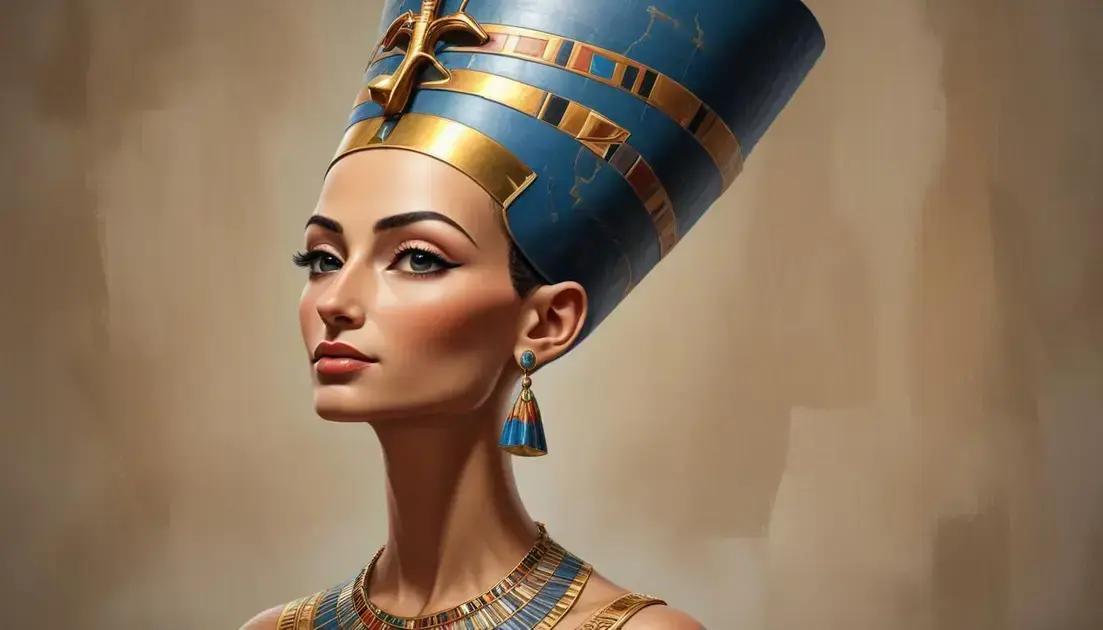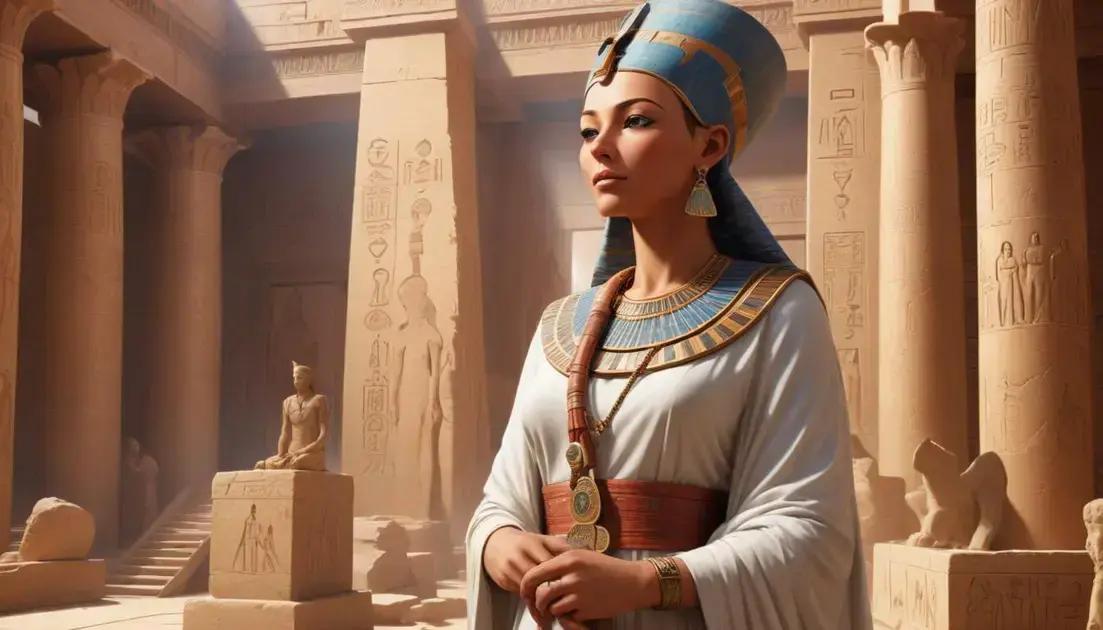
The Story of Cleopatra: Egypt’s Last Queen
Cleopatra VII Philopator, the last active ruler of the Ptolemaic Kingdom of Egypt, remains one of history’s most captivating and enigmatic figures. Her life, a tapestry woven with ambition, intrigue, romance, and ultimately, tragedy, continues to fascinate and inspire centuries later. Far from a simple romantic interest in the stories of Julius Caesar and Mark Antony, Cleopatra was a shrewd politician, a skilled diplomat, and a powerful leader who navigated the treacherous political landscape of her time with remarkable cunning and determination. This exploration delves deep into the life of this extraordinary woman, separating fact from fiction and revealing the complexities of her reign and its lasting impact on the world.
The Ptolemaic Legacy and Cleopatra’s Ascent:
Cleopatra’s birth in 69 BCE marked a pivotal moment in the waning years of the Ptolemaic dynasty, a Greek lineage ruling Egypt since the death of Alexander the Great. The dynasty, though initially successful in blending Greek and Egyptian cultures, had gradually weakened, plagued by internal strife, political instability, and economic mismanagement. Cleopatra’s father, Ptolemy XII Auletes, epitomized this decline. His reign was marked by corruption, financial recklessness, and a reliance on Roman patronage that ultimately mortgaged Egypt’s sovereignty. His death in 51 BCE plunged Egypt into further turmoil.
The Ptolemaic system of succession, involving sibling marriages and co-rule, was designed to maintain power within the family. However, this often resulted in bitter power struggles, and Cleopatra’s ascension to the throne alongside her ten-year-old brother, Ptolemy XIII, was no exception. While nominally co-rulers, the power dynamic was immediately skewed. Cleopatra, exhibiting a precocious political acumen and a commanding personality, quickly asserted her dominance. This early display of ambition foreshadowed her future actions and reveals a woman acutely aware of the precariousness of her position and the need for decisive action.
The initial years of Cleopatra’s reign were fraught with challenges. The Egyptian populace, weary of the Ptolemaic dynasty’s excesses, was increasingly resentful. Furthermore, the Roman Republic, ever expanding its influence, cast a long shadow over Egypt, constantly vying for control of its immense wealth and resources. Cleopatra understood that survival demanded a shrewd understanding of Roman politics and a willingness to exploit the existing power dynamics to her advantage.
A Queen’s Gambit: Diplomacy, Romance, and the Rise of Rome:
Cleopatra’s astute understanding of power politics led her to recognize the significance of forging strategic alliances, often through calculated romantic relationships. Her interactions with powerful Roman figures were not merely affairs of the heart but carefully orchestrated maneuvers to secure her position and protect Egypt’s interests.
Her encounter with Julius Caesar in 48 BCE is perhaps the most famous example of this strategy. Caesar, embroiled in the Roman civil war, had arrived in Egypt pursuing Pompey, his rival. Cleopatra, demonstrating audacious courage and a keen understanding of Caesar’s ambitions, secretly met him, bypassing the entrenched opposition of her brother and advisors. Her charm, intelligence, and political acumen captivated Caesar, who recognized her as a valuable ally. Their relationship resulted in the birth of Caesarion, a son claimed to be Caesar’s, strengthening Cleopatra’s position and forging a crucial link between Egypt and Rome.
The assassination of Caesar in 44 BCE, however, threw Cleopatra’s carefully constructed world into chaos. Ptolemy XIII, now emboldened by the absence of Caesar’s support, attempted to seize sole control of Egypt. Cleopatra, in a display of both military and political prowess, decisively defeated her brother in a brief but decisive civil war, solidifying her position as the sole ruler of Egypt. Her subsequent alliance with Mark Antony, another prominent Roman general, further solidified her power and provided crucial military backing against those who sought to challenge her authority.
The relationship between Cleopatra and Mark Antony, often romanticized, was, in reality, a pragmatic alliance. Antony, captivated by Cleopatra’s charisma and intellect, provided vital military and political support, securing Egypt’s position within the increasingly volatile Roman political landscape. Their alliance, however, also became a significant factor in the escalating power struggles within Rome, culminating in the decisive confrontation at the Battle of Actium.
Actium and the Fall of Alexandria:
The Battle of Actium in 31 BCE marked a turning point not only in Cleopatra’s life but also in the history of the ancient world. The conflict pitted Cleopatra and Mark Antony against Octavian, Caesar’s heir, who had consolidated his power in Rome and sought to bring Egypt under Roman control. The battle, a naval clash off the coast of Greece, was a devastating defeat for the combined Egyptian and Roman forces loyal to Antony and Cleopatra.
The consequences of Actium were far-reaching. Octavian’s victory signaled the end of the Roman Republic and the dawn of the Roman Empire under his rule (Augustus). Egypt, once a powerful and independent kingdom, was now vulnerable to Roman conquest. Octavian’s forces marched on Alexandria, the jewel of Egypt, bringing an end to Cleopatra’s reign.
Faced with inevitable defeat and capture, Cleopatra, ever the strategist, chose a tragic but defiant end. The exact circumstances of her death remain shrouded in some mystery, but the traditional account speaks of a venomous asp ending her life, preventing her from suffering the humiliation of Roman captivity. The death of Cleopatra marked the official end of the Ptolemaic dynasty and the commencement of Egypt’s status as a Roman province. This marked a profound shift in geopolitical power.
Cleopatra’s Legacy: Beyond Romance and Reign:
Cleopatra’s story, often reduced to a tale of romance and betrayal, transcends its narrative simplicity. Her impact extends far beyond her personal relationships and the dramatic events of her final years. Cleopatra was a skilled administrator, managing the complex affairs of a vast and diverse kingdom. She understood the importance of patronage and actively supported the arts and sciences, fostering Alexandria’s reputation as a center of learning and culture. The Library of Alexandria, a testament to intellectual pursuit, flourished under her patronage.
Cleopatra’s legacy also lies in her masterful use of diplomacy and her ability to leverage her relationships with powerful men to secure Egypt’s interests. Her strategic maneuvers, though sometimes morally ambiguous, reflect a keen understanding of power dynamics and a pragmatic approach to survival in a world dominated by ruthless ambition. Cleopatra was a powerful woman who successfully navigated a patriarchal world, ruling for over two decades and leaving an indelible mark on history. She defied gender norms in a time when women rarely held such power, creating a legacy that continues to inspire and challenge.
Cleopatra’s image, constantly reinvented through the ages, has become a cultural touchstone. From Shakespeare’s dramatic portrayal to Hollywood’s glamorous depictions, her story has resonated with audiences for centuries. Her life, fraught with political intrigue, military conflict, and passionate romance, provides a compelling narrative that continues to captivate. This enduring fascination speaks not only to her dramatic life but also to the enduring power of a woman who, against incredible odds, reigned as a queen and left an indelible mark on history.
The Historical Cleopatra: Separating Myth from Reality:
While Cleopatra’s image has been heavily romanticized and mythologized, separating fact from fiction is crucial to understanding her true legacy. Contemporary sources like Plutarch and Cassius Dio offer valuable insights, although they must be analyzed critically, acknowledging their biases and the potential for exaggeration. Archaeological evidence, including inscriptions, coins, and papyrus fragments, further corroborates aspects of her reign and provides a more grounded perspective.
Modern scholarship has sought to unravel the complexities of Cleopatra’s life, utilizing diverse historical sources and applying analytical methods to provide a more nuanced and historically accurate portrait. This process involves examining the context of her time, appreciating the constraints and opportunities available to her, and discerning genuine achievements from the embellishments of legend.
Cleopatra in the Modern World:
Cleopatra’s impact resonates deeply in the modern world. Her image continues to symbolize female power, ambition, and resilience. She serves as a reminder that women, throughout history, have defied gender norms and attained positions of great influence and power. Cleopatra’s story, however tragic its end, showcases the power of strategic thinking, resilience, and a determined pursuit of one’s goals, regardless of societal constraints.
Moreover, her life offers valuable lessons in political maneuvering, diplomacy, and the complexities of international relations. Her interactions with Roman leaders reveal the intricacies of power struggles and the crucial role of alliances in maintaining political stability (or in achieving dominance). The study of Cleopatra’s life, therefore, extends beyond the realm of ancient history, offering insights into enduring political dynamics and the complexities of human relationships within a context of power.
Conclusion:
Cleopatra VII Philopator was more than a queen; she was a symbol of an era, a pivotal figure in the transition from the Roman Republic to the Empire, and a woman who navigated a turbulent world with unmatched skill and determination. Her life, though marked by tragedy, leaves an enduring legacy that continues to inspire, challenge, and captivate audiences across the globe. She remains an enduring enigma, a complex figure whose story continues to be retold and reinterpreted, ensuring her enduring place in history and popular culture. By separating myth from reality and examining her life within its historical context, we can appreciate not only the drama of her life but also the lasting significance of her reign and the enduring power of her legacy.


